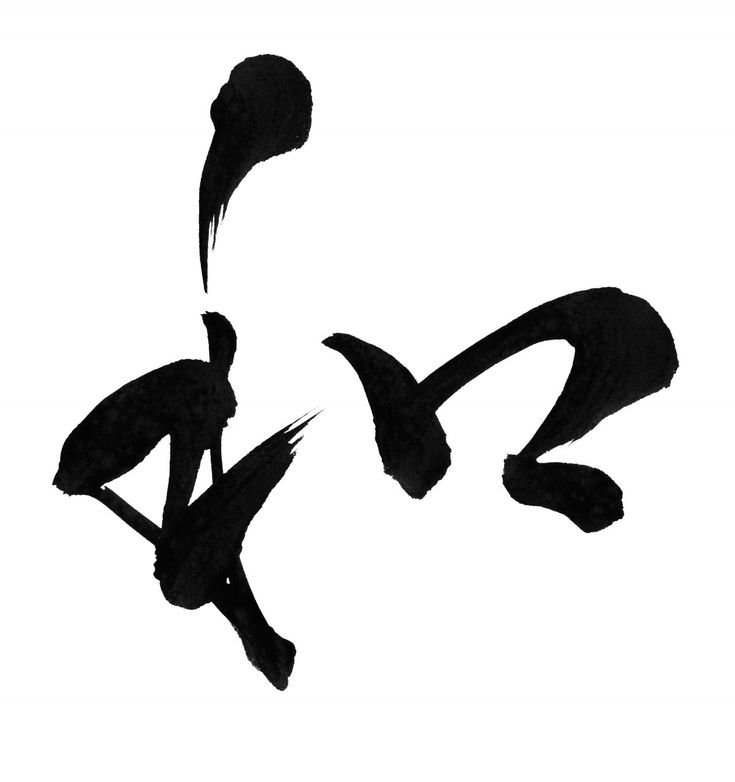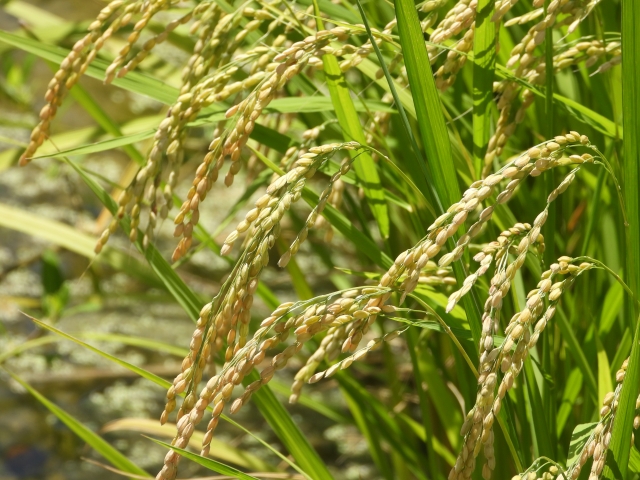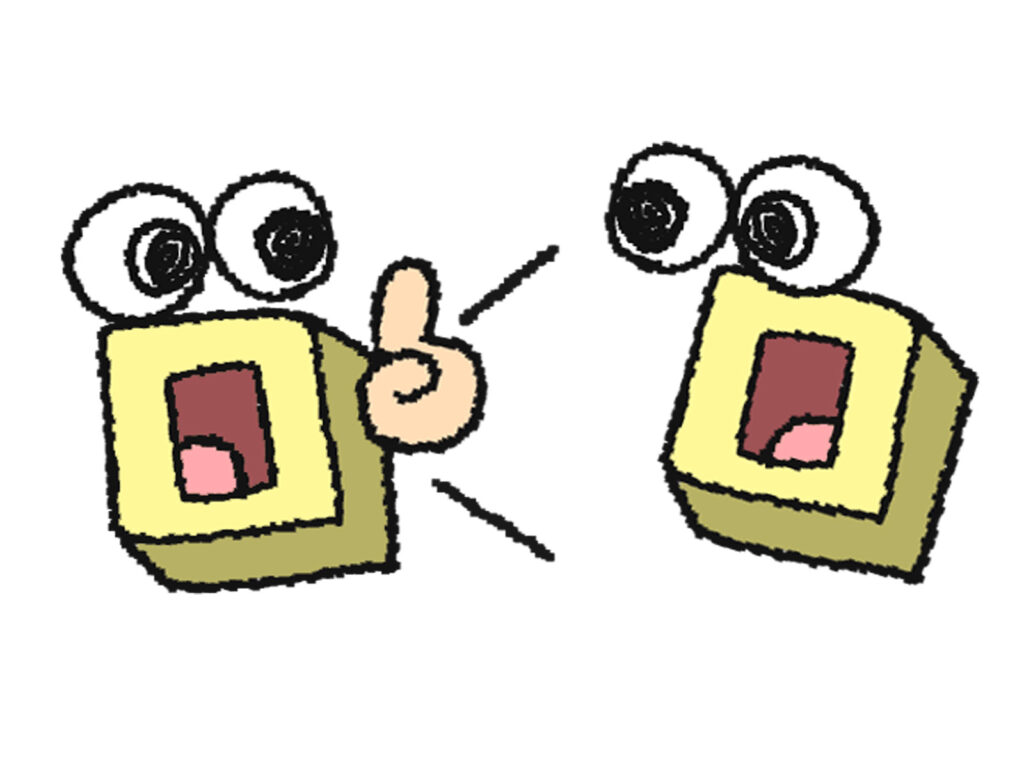
I will examine the fundamental meaning of “和” (wa) through its kanji.
“和” (wa) is a word that signifies harmony and peace.
It is a concept that represents people cooperating and living together,
avoiding conflict and striving for coexistence and mutual prosperity.“和” is a fundamental value embedded in Japanese culture,
deeply influencing Japanese behavior and thinking.
From the Practical Japanese Expression Dictionary
The kanji “和” consists of “禾” (nogihen) and “口” (kuchi).
“禾” represents grain crops in general, such as rice, and is said to depict the appearance of ripened grain bending under its weight.
The form of “禾” expresses this bending appearance.

“口” is generally interpreted as representing the mouth.
However, according to Dr. Shirakawa Shizuka, a leading researcher in kanji studies, “口” is interpreted as “the shape of a vessel into which ritual prayers are placed.” Since both “祝詞” (norito, sacred Shinto prayers) and vessels may not be easy to visualize in our modern context, it might be understood that a vessel is something into which many prayers to the gods are placed, given that the character for “vessel” (器) also contains multiple “口” elements.
“祝詞” (norito) are words of prayer offered to the gods during rituals.
Norito are words recited by Shinto priests during ceremonies to honor the gods.
The content typically involves offering sacred food (神饌, shinsen) and ritual objects (幣帛, heihaku), expressing gratitude and praise for the divine virtues, and praying for further blessings.
Thus, “口” represents a vessel into which words of prayer to the gods are placed.
While it is generally understood that norito are words created by humans and offered to the gods, I believe the opposite is true.
Rather than humans creating words for the gods, I see it as humans expressing the will of the divine through their “mouths.” Ordinary people speaking words may not have a significant impact, so Shinto priests serve as representatives to perform these expressions in the form of rituals.
The divine cannot express itself directly. It can only convey its will through humans as mediums of expression.
This means that the words spoken from each of our mouths inherently carry the weight of expressing the divine will.
Moreover, before words are spoken, there is always intention (意). Consciousness is equally bestowed upon all living humans, and the very source of this consciousness is the divine itself.
Thus, “口” is not merely a physical entity for eating or speaking—it serves as a sacred vessel for transmitting the will of the divine.
口 = A vessel that holds an infinite number of divine words

So far, I have examined “口” in relation to speech. However, the mouth also plays another essential role: consuming food.
When I was a dentist many years ago, I often encountered mysterious phenomena in the oral region. One such phenomenon was how even microscopic adjustments to dental occlusion (噛み合わせ, kamiawase) could dramatically and instantly alter the human body. It was truly an area of “divine alignment, to unite with god” (神合わせ,kamiawase).
We typically understand “口” only in its physical function—chewing and swallowing food. However, its meaning extends beyond the visible.
For example, in Japan, there is a tradition of offering rice to the gods, known as “神米” (shinmai). There is also a concept of sacred food.
The most primitive dietary philosophy is the ancient belief in “shared meals between gods and humans.”
Nearly every culture in the world has had sacred foods and traditions that honor them.
People believed that consuming food imbued with the divine presence allowed them to commune with the gods and ancestral spirits.
… Staple crops were often regarded as sacred foods, and consuming them was considered an act of worship.Sociology of Food, Vol. 13: The Concept of Divine-Human Shared Meals by Naoki Hashimoto
Thus, “口” also holds the profound meaning of “divine alignment, to harmonize with god” (神合わせ).。
Summarizing the above, we can decode the meaning of the kanji “和.”
In other words, “和” means “To harmonize with God.”
In Japan, addition (+) is called “和” (wa), meaning “to combine” or “to unite.” But what is being combined? It is the divine itself.
As I mentioned in The One and Only Universal Consciousness , while everything we perceive has form and name, the unseen essence is singular—this is the divine.
Food = Divine
Humans = Divine
Mountains = Divine
Oceans = Divine
Everything is an expression of the divine. Since the divine is infinite, we cannot divide its essence into “this person” or “that person,” “this country” or “that country.”
Among the senses, the mouth is particularly significant as a point of interaction with the divine—it is the gateway through which we speak (output) and consume food (input). The transformation of food into bodily energy and life is nothing short of a divine miracle.

Let us return to the initial definition.
“和” (wa) is a word that signifies harmony and peace.
It represents people cooperating and living together, avoiding conflict and striving for coexistence and mutual prosperity.
It is a fundamental value embedded in Japanese culture, deeply influencing Japanese behavior and thinking.
When we understand the meaning of “和” as “divine alignment, to harmonize with god” many words take on deeper significance:
By focusing on “divine alignment” in our daily lives, we can see a beautiful reality. We exist alongside the divine, and everything exists in unity with the divine.
– Humans and the divine align to weave words.
– Food, humans, and the divine align to sustain life.
– Humans and the divine align to create harmony.
– The harmony between nature and humans is, in essence, the harmony between the divine and humanity.
Since “和” itself represents Japan, perhaps we, as the people of this land, have a significant role to play.
In the next discussion, I will explore the Shinto concept of “惟神の道” (Kannagara no Michi).
To avoid misunderstandings, I want to clarify that I do not belong to any religion, nor have I ever been part of one. I also have no academic knowledge of Shinto. When I use the word “god” (神), I simply refer to the existence that created us, this world, and the universe.
I have no intention of guiding anyone in any particular direction—please take this as my personal monologue.